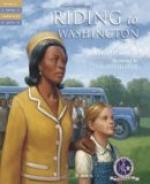The death of Moorman called forth expressions of grief and of grateful affection, so strong and so manifestly sincere as to bring something of surprise even to his closest friends. Much more surprising would they have been to himself. They came from every side, from lettered and unlettered, from loom and dale, from school and university. Nothing could prove more clearly how strong was the hold he had won upon all who knew him, how large the place he filled in the heart of his colleagues and the county of his adoption. It was a fitting tribute to a literary achievement of very distinctive originality. It was also, and above all, a tribute, heartfelt and irrepressible, to the charm of a singularly bright and winning spirit: to a life which had spent itself, without stint and without one thought of self, in the service of others.
Endnotes (were footnotes):
(1) To this family is believed to have belonged John Moreman, Canon and eventually Dean of Exeter (though he died, October, 1554, “before he was presented to the Deanery"), of whom an account will be found in Prince’s Worthies of Devon (ed. 1701, pp. 452-453), as well as in Wood’s Athenoe and Fasti Oxonienses and Foxe’s Book of Martyrs. He was “the first in those days to teach his parishioners to say the Lord’s Prayer, the Belief and the Commandments in the English tongue” (whether the contrast is with Latin or Cornish, for he was then Vicar of Menynhed, in East Cornwall, does not appear). He was imprisoned, as a determined Catholic, in Edward VI.’s reign, but “enlarged under Queen Mary, with whom he grew into very great favour,” and was chosen to defend the doctrine of Transubstantiation before the Convocation of 1553.
(2) His thesis for this degree, on The Interpretation of Nature in English Poetry from Beowulf to Shakespeare, was published in 1905.
(3) He published editions of The Faithful Shepherdess, The Knight of the Burning Pestle and The Two Noble Kinsmen in 1897, and an elaborately critical edition of Herrick’s Poems, in completion of his Study, in 1915. He also contributed the chapter on “Shakespeare’s Apocrypha” to the Cambridge History of English Literature; and for many years acted as English editor of the Shakespeare Jahrbuch.
(4) Dean Bourne, the parish to which Herrick was not very willingly wedded, is within five miles of Ashburton, Moorman’s birthplace.
(5) The words in inverted commas are quoted from the records of the Class, kindly communicated by the secretary, Mr Hind. It is difficult to imagine anything stronger than the expressions of affectionate respect which recur again and again in them. I add one more, from the pen which wrote the second quotation: “So quiet, yet so pervading, was his love that each felt the individual tie; and our class, so diverse in spirit, thought and training, has never heard or uttered an angry word. We felt it would be acting disloyally to hurt anyone whom he loved.”




